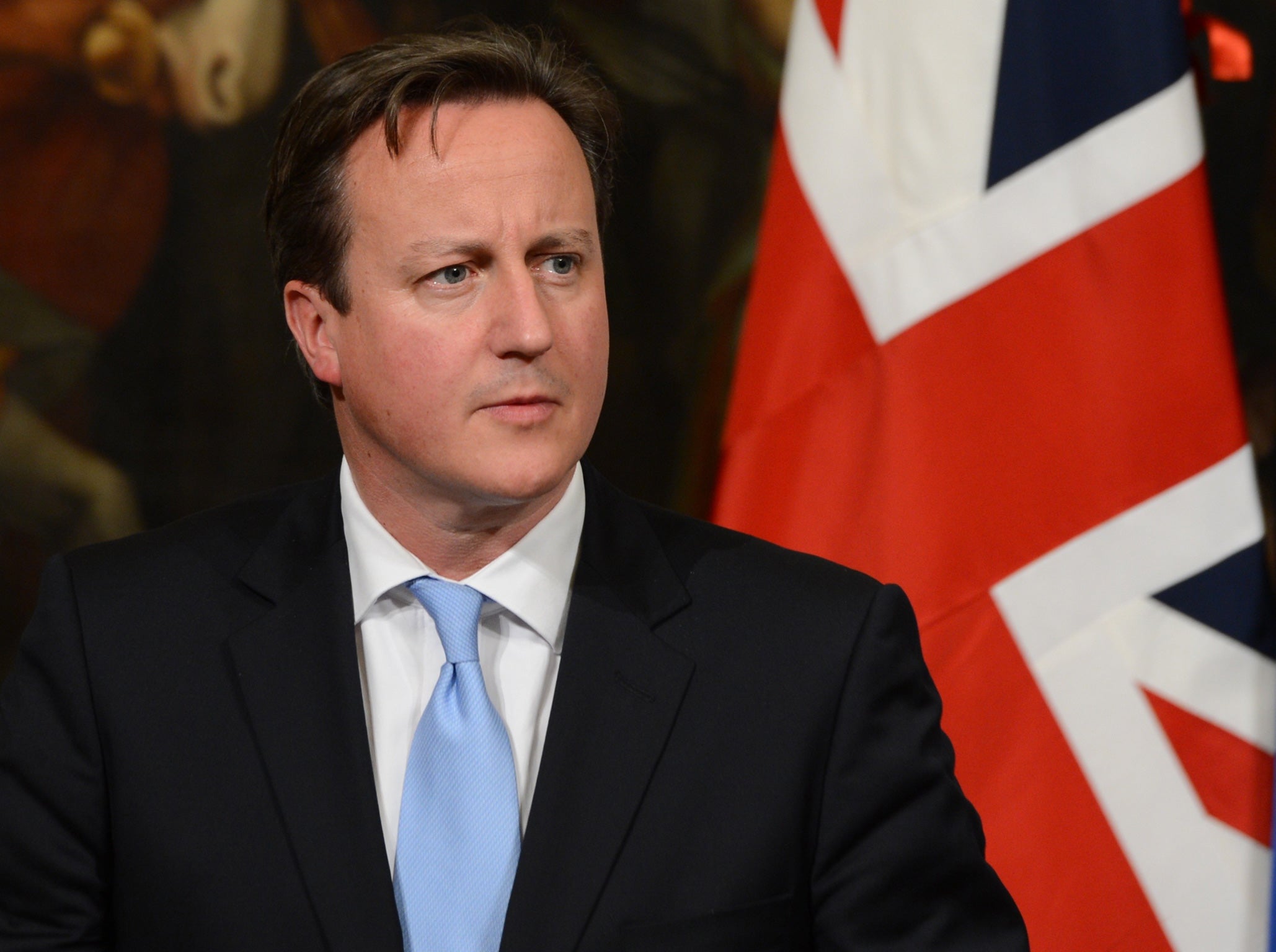David Cameron says European Union must stop 'picking the pockets' of its citizens

Your support helps us to tell the story
From reproductive rights to climate change to Big Tech, The Independent is on the ground when the story is developing. Whether it's investigating the financials of Elon Musk's pro-Trump PAC or producing our latest documentary, 'The A Word', which shines a light on the American women fighting for reproductive rights, we know how important it is to parse out the facts from the messaging.
At such a critical moment in US history, we need reporters on the ground. Your donation allows us to keep sending journalists to speak to both sides of the story.
The Independent is trusted by Americans across the entire political spectrum. And unlike many other quality news outlets, we choose not to lock Americans out of our reporting and analysis with paywalls. We believe quality journalism should be available to everyone, paid for by those who can afford it.
Your support makes all the difference.David Cameron has challenged the European Union to stop “picking the pockets” of the public today after launching a diplomatic drive to win the support of other EU leaders for a freeze in spending by Brussels.
With three days to go to an EU summit to settle its 2014-20 budget, Downing Street disclosed the Prime Minister had “hit the phones” in an effort to find allies in what threaten to be tortuous and acrimonious negotiations.
Mr Cameron spoke to the leaders of France, Germany, Poland, Sweden, Denmark and the Netherlands, while Deputy Prime Minister Nick Clegg contacted his counterparts in Finland and the Baltic States. Further contacts are planned in the run-up to the summit starting in Brussels on Thursday.
Britain is pressing for a real-terms freeze, while the European Commission – backed by many EU member states – supports an above-inflation increase. Mr Cameron has the added pressure of Tory Eurosceptics and Labour demanding a cut in budgets.
One suggestion emerging is that Britain would settle for a freeze in the budget in return for a reduction in administrative spending by Brussels – notably salary cuts for some of its top-earners
Speaking at the CBI conference in London today, Mr Cameron said: “One of the interesting things about the proposals so far in this debate about the EU budget is how little attention there has been on the central costs of the EU, the commission budget, what people get paid.”
He said: “Here in the UK I have frozen some benefits, I have frozen people's pay, I have cut some budgets by 30 per cent.
“I have actually cut the police budget by 20%. It is simply not credible to go to Europe and say we have made all these difficult decisions at home but when it comes to the European budget we are going to see it go up and up and up.
I don't think it makes you a bad European because you want a tough budget settlement in Europe.
“I think it makes you a good European. I think I have got the people of Europe on my side in arguing that we should stop picking their pockets and spending more and more money through the EU budget, particularly when so many parts of the European budget are not well spent.”
Downing Street said: “The Prime Minister believes we can work through these details to get the right deal at this week's summit and we are ready to do that.”
The veteran Europhile Conservative minister, Kenneth Clarke, risked further inflaming Tory divisions on Europe by insisting it would be a “disaster” for Britain to leave the EU.
He said the UK's negotiating position was being undermined by the “irresponsible” debate about its continuing membership.
“We are going through a very curious stage in the national debate. For the past 20 years, the country gets near to having a nervous breakdown on the subject every now and then,” he told the BBC Radio 4 Today programme.
Join our commenting forum
Join thought-provoking conversations, follow other Independent readers and see their replies
Comments